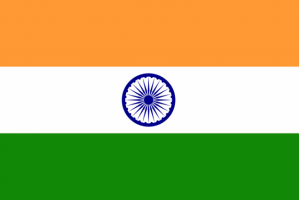Free Speech Battle In India: Google, Facebook Summoned By Court Over “Inflammatory Images”
According to a report from Chinese news agency Xinhua, a judge in India has ordered a broad range of online companies, including Google, Facebook and Yahoo, to “delete ‘inflammatory’ images of religious figures” from their sites. Though not identified in news reports the images were deemed offensive or blasphemous under a sweeping law enacted earlier […]
 According to a report from Chinese news agency Xinhua, a judge in India has ordered a broad range of online companies, including Google, Facebook and Yahoo, to “delete ‘inflammatory’ images of religious figures” from their sites. Though not identified in news reports the images were deemed offensive or blasphemous under a sweeping law enacted earlier this year aimed at blocking or removing “offensive” or “objectionable” content from the internet in India.
According to a report from Chinese news agency Xinhua, a judge in India has ordered a broad range of online companies, including Google, Facebook and Yahoo, to “delete ‘inflammatory’ images of religious figures” from their sites. Though not identified in news reports the images were deemed offensive or blasphemous under a sweeping law enacted earlier this year aimed at blocking or removing “offensive” or “objectionable” content from the internet in India.
In case the problem with implementation of a law against “objectionable” content isn’t self-evident its provisions are vague and scope extremely broad. The law includes a laundry list of concepts and content restrictions susceptible to highly subjective interpretation:
[The law implicates] anything that is “harmful, threatening, abusive, harassing, blasphemous, defamatory, pornographic, libellous, invasive of another’s privacy, hateful, disparaging, racially, ethnically or otherwise objectionable, relating to money laundering or gambling.”
The law, which Google sought to modify before its enactment, is part of an effort to regulate morality and content on the internet in India, a country with an otherwise healthy free-speech tradition. But this law gives enormous power to both the government and to individuals to block or remove content that is subjectively disfavored for one reason or another.
Accordingly, the ability to criticize public figures and to engage in critical public discussion or debate over history and political or social issues is directly threatened by the law. Google and other internet companies originally opposed the law for logistical and liability reasons.
With more than 1 billion people, India is one of the largest potential markets in the world for Google, Facebook and other technology companies. But together with China (the largest market), US and European companies face challenging government restrictions and content censorship.
Contributing authors are invited to create content for Search Engine Land and are chosen for their expertise and contribution to the search community. Our contributors work under the oversight of the editorial staff and contributions are checked for quality and relevance to our readers. The opinions they express are their own.
Related stories
New on Search Engine Land